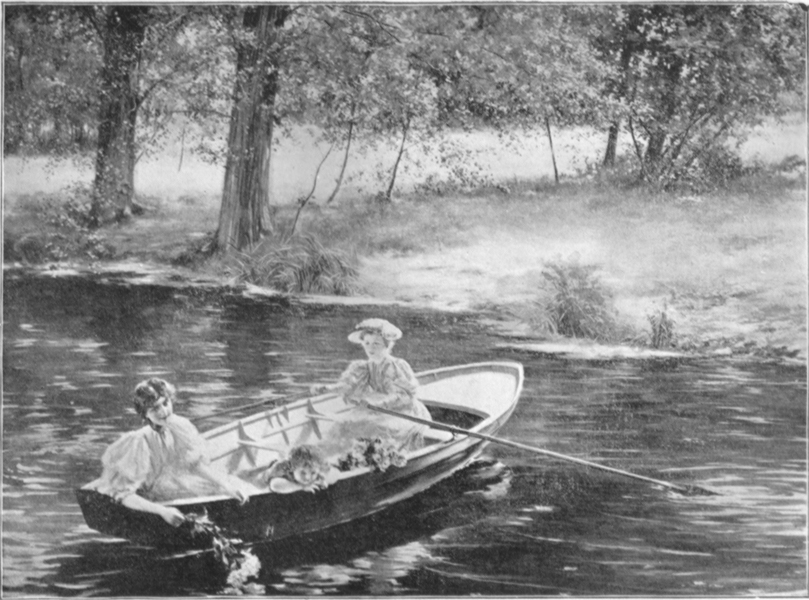From The International Library of Masterpieces, Literature, Art, & Rare Manuscripts, Volume XXX, Editor-in-Chief: Harry Thurston Peck; The International Bibliophile Society, New York; 1901; pp. 11173-11175.
WITHER, GEORGE, an English soldier and poet; born at Brentworth, Hampshire, June 11, 1588; died at London, May 2, 1667. For a volume of metrical satires on the manners of the time, “Abuses Stript and Whipt” (1613), he was cast into prison, where he wrote “The Shepherd’s Hunting” (1615), and, perhaps, “Fidelia.” Some of his volumes are: “The Motto” (1618); “Faire Virtue, or the Mistress of Philarète” (1622); “Hymns and Songs of the Church” (1623); and “Hallelujah” (1641). His best-known song is “Shall I, Wasting in Despair.” He was an ardent Puritan, and was made major-general in Surrey by Cromwell.
SHALL I, wasting in despair,
Die, because a woman’s fair?
Or make pale my cheeks with care
’Cause another’s rosy are?
Be she fairer than the day,
Or the flowery meads in May,
If she be not so to me,
What care I how fair she be?
Should my heart be grieved, pined,
’Cause I see a woman kind?
Or a well-disposèd nature
Joinèd with a lovely feature?
Be she meeker, kinder than
Turtle-dove or pelican:
If she be not so to me,
What care I how kind she be?
Shall a woman’s virtues move
Me to perish for her love?
Or her well-deserving known
Make me quite forget mine own?
11174
Be she with that goodness blest
Which may merit name of best:
If she be not such to me,
What care I how good she be?
’Cause her fortune seems too high,
Shall I play the fool and die?
Those that bear a noble mind,
Where they want of riches find,
Think what with them they would do,
That without them dare to woo.
And unless that mind I see,
What care I though great she be?
Great, or good, or kind, or fair,
I will ne’er the more despair.
If she love me (this believe),
I will die ere she shall grieve:
If she slight me when I woo,
I can scorn and let her go;
For if she be not for me,
What care I for whom she be?
qpqpqpqpqpqpqpqpqpqpqpqpqpqpqp
qpqpqpqpqpqpqpqpqpqpqp
qpqpqp

SUMMER TIME
“Now the glories of the year
May be viewed at the best”
From a Painting by L. P. Lamy
NOW the glories of the year
May be viewèd at the best,
And the earth doth now appear
In her fairest garments dressed;
Sweetly smelling plants and flowers
do perfume the garden bowers;
Hill and valley, wood and field,
Mixed with pleasure profits yield.
Much is found where nothing was;
Herds on every mountain go;
In the meadows flowery grass
Makes both milk and honey flow.
Now each orchard banquets giveth;
Every hedge with fruit relieveth;
And on every shrub and tree
Useful fruits or berries be.
Walks and ways which winter marred,
By the winds are swept and dried;
Moorish grounds are now so hard
That on them we safe may ride;
11175
Warmth enough the sun doth lend us,
From his heat the shades defend us.
And thereby we share in these,
Safety, profit, pleasure, ease.
Other blessings, many more,
At this time enjoyed may be,
And in this way my song therefore
Praise I give, O Lord! to thee:
Grant that this my free oblation
May have gracious acceptation,
And that I may well employ
Everything which I enjoy.